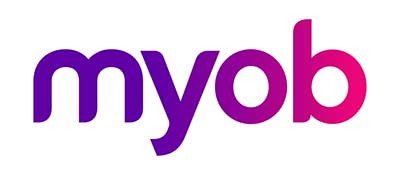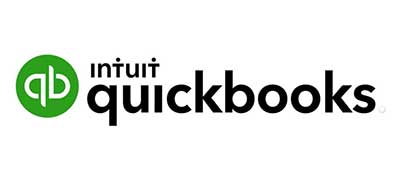For some, the lure of being in business is too strong to refuse. Whether it’s the desire to make a fortune, the ability to perfect that work/life balance or just purely the chance to call the shots, running your own business can be a great way to achieve those goals. Don’t get me wrong, there’s certainly risks in doing this – the reality is around 2 in 3 new small businesses won’t be in business 10 years down the track. Once you decide that the life of a business owner is for you, there’s really two options available. You can either buy an existing business or start your own from scratch. Whilst there’s no doubt that starting a business from scratch can work brilliantly, this article will focus on 9 things that potential business buyers should be thinking about.
1 – What are you actually buying?
Businesses come in all different shapes and sizes and vary hugely from industry to industry. A café for example, is on a completely different spectrum to a law firm. Are you buying stock, equipment, a website, a client list, a lease agreement, or something different again? If you’re willing to pay for it, there must be something of lasting value. If you can’t clearly articulate what it is and why you can’t create it yourself, then is it really worth paying for?
2 – Get your business structure right
Most people thinking about buying a business want to keep their costs low, and who can blame them? One of the most important (yet overlooked) aspects of starting a business is choosing the right business structure to operate the business. Getting the business structure wrong can create a number of headaches down the line that could have been prevented with better planning. Check this out to help you choose the right business structure.
3 – Don’t trust the seller
It’s surprising how often I see business buyers put their complete faith in the person selling the business. The reality is that most business sellers want to achieve the best sales price for their business, and some are willing to stretch the truth to do so. In my experience, business owners generally only sell for 1 of 3 reasons:
- They want to retire
- Personal reasons (moving to another area, family issues, health reasons, etc.)
- The business isn’t making enough profit for the effort they’re putting in
Often business buyers are too excited about their potential purchase to investigate the details. This is a mistake! When buying a business, you should demand the last 3 years’ worth of financial statements, tax returns and BAS. If they’re not able to provide this paperwork, the figures on those reports don’t match up to the seller’s bank statements or they try to convince you of something otherwise – this is a red flag. Plenty of sellers will try to sell you a dud. Don’t make assumptions, don’t take their word for it – do your homework and ask lots of questions.
4 – Franchise or unique brand?
Most people probably think franchises like McDonalds, Boost Juice, Subway, etc. make a lot of profit. Well… they’re right. But often it’s not the franchisee making the profit – rather most of it goes to head office. Franchises vary widely but most will offer a set of systems, equipment and branding to give the business a good chance of making a reasonable profit. However, a lot of them charge substantial upfront and ongoing fees to do this. So, often the franchisees end up with little profit even though some of them work very hard to achieve this. In my experience, I have rarely seen franchisees earn any more than a modest income. In contrast, I think there’s a lot more to be gained from buying a unique brand for a one-off payment.
5 – Where will the cash come from?
Almost all businesses burn cash early on in their journey. When buying a business, it probably goes without saying that you’ll need to finance the purchase price, however there are other things to consider as well – one-off legal and structuring costs, obtaining any required licences, investment in stock and/or equipment, payment of expenses (e.g. staff, rent, etc.) prior to the business generating cash flow. You’ll need to quantify these costs and factor in a buffer for the unknown. Once you know how much cash you’ll need and when you’ll need it, you’ll need to determine where this will come from (e.g. savings, a bank loan or family member).
6 – Will there be a transition period?
Some (particularly relationship) based businesses are highly dependent on the business owner for their success. Customers or clients may have a strong affinity with the existing business owner and may not be happy about a change in ownership. For this reason, it’s not uncommon for the existing business owner to stay on in a temporary employment capacity to protect the buyer’s investment. During this time, the seller’s role will be to introduce the buyer to key customers or clients, provide the seller with the relevant training and make sure the transition to the new ownership is seamless. As a buyer, you’ll need to think about whether your business type will need a transition period and make sure you and the buyer have a common understanding about this.
7 – Does the price add up?
Business valuations are tricky at the best of times. There’s a number of different methods that can be used in calculating the value of any business. These vary from industry to industry and take a lot of different factors into account. Buying businesses, however, isn’t like buying used cars. Whilst there are heaps of similar used cars out there and it’s fairly easy to calculate a reasonable price for one, businesses aren’t sold nearly as often and two businesses in the same industry are rarely the same. At the end of the day, a business is worth the amount that the buyer is willing to pay and the seller is willing to accept.
That being said, it will probably be worthwhile to get a second (or third) opinion on the sales price. If you’re going to make a significant investment of your time, money and energy, you don’t want to be paying more for something than it’s worth. An accountant or business broker will probably be able to more accurately determine whether you’re about to make a mistake or not. Wouldn’t you rather know this before making such a big decision?
8 – Ensure a restraint of trade is in place
In almost 100% of cases, it’s going to be worthwhile to engage a good solicitor when buying a business. When buying a business, there should always be a written contract in place that clearly outlines the rights and obligations of both the buyer and the seller. There will be things that a good solicitor will address in a business contract which you’re likely to miss. One essential item for every business sale contract is a restraint of trade on the seller. This prevents the business seller from starting up a rival business which could damage your new investment.
9 – Don’t make big changes straight away
A common mistake business buyers can make is to implement significant changes to the business soon after taking control of it. Don’t get me wrong, if you buy a business, you’re free to do whatever you want with it. However, it’s worth thinking about why you’re willing to pay for a business in the first place. Presumably, you would only want to buy a profitable business, and at least some of the purchase price would relate to the share of future profits you’re paying for. So, assuming you continue running the business as it was previously being run, there’s a good chance it will continue to make a similar profit. That being said, as you become more confident and familiar with the business over time, you will hopefully find ways of doing things better. If that’s the case, improving on these things will only improve the business.
Seek help
Buying a business can be a big investment of your time, money and energy. It’s an investment that many business buyers don’t do enough homework on. To give yourself the best chance of being one of the 1 in 3 small businesses still trading after 10 years, you’ll likely need help during the purchase process. You’ll need help getting your business structure right, asking the seller the important questions, making sure the valuation is appropriate and drafting up the contract. Yes, these things will cost money. But can you afford to get such a huge decision wrong?








